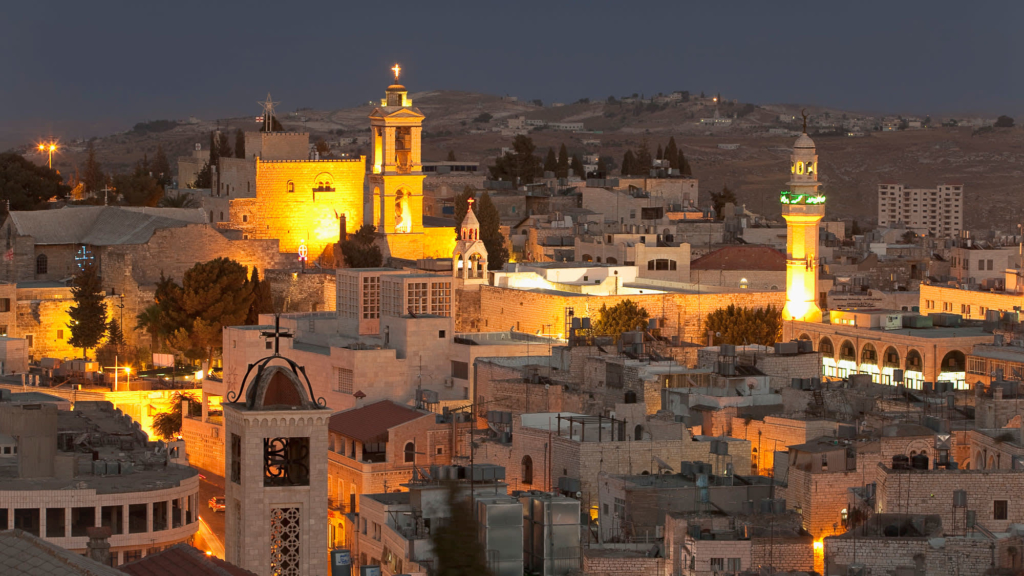O Little Town of Bethlehem

I’m currently writing an Advent devotional entitled The Anticipated Christ. It’s the companion to my Lenten devotional The Unvarnished Jesus. Today I wrote three meditations and I’m now about halfway done with the book. I thought I would share the most recent meditation with you.
O Little Town of Bethlehem
But you, O Bethlehem of Ephrathah,
who are one of the little clans of Judah,
from you shall come forth from me
one who is to rule in Israel,
whose origin is from of old,
from ancient of days…
He shall stand and feed his flock in the strength of the Lord,
in the majesty of the name of the Lord our God.
And they will abide undisturbed,
for now he shall be great to the ends of the earth;
and this one shall be our peace
(Micah 5:2-5)
The prophet Micah was a contemporary of Isaiah of Jerusalem, prophesying seven hundred years before Christ. Micah is best known to us as the one who prophesied the birth of Messiah in Bethlehem. Of course, Bethlehem was the birthplace of King David, so it makes sense that the messianic Son of David would also be born there. Nevertheless, Bethlehem was only a small and seemingly insignificant village, but this is in keeping with the ways of God — the work of God often emerges from quiet obscurity.
Before the village was known as Bethlehem (House of Bread), it was identified as Ephrathah (Ash Heap). It was here that Rachael, Jacob’s beloved wife, died in childbirth and was buried. To this day the tomb of Rachel is located right outside the entrance to Bethlehem. Do we see a hint of the gospel in this? The ash heap of sorrow and loss can become the place where the Bread of Life is born.
Micah prophesies that the one whose origin is from the Ancient of Days destined to rule Israel will be born in Bethlehem — a village known as “the little one of the clans of Judah.” Like his father David, the Messiah born in Bethlehem will also be a shepherd, feeding his flock in the strength of Yahweh. And though he heralds from the smallest village in Judah, Micah says he will become “great to the ends of the earth.” The Bethlehem portion of Micah’s poem ends with the prophet saying, “And this one shall be our peace.”
What an amazing prophecy this is. Indeed, the little town of Bethlehem is famous the world over because the Prince of Peace was born there. Yet the prophecy is still unfolding because we are still learning to follow our peaceful Shepherd.
I’ve been to Bethlehem more than twenty times. I have Palestinian Christian friends who live there. I love spending time in the ancient Church of the Nativity that venerates the traditional birthplace of Christ. On my writing desk I have a beautiful cross icon that I obtained at one of Bethlehem’s olive wood stores. I’ve found peace and beauty in Bethlehem. But I’ve also seen separation walls, rubber bullets, and teargas canisters there. Situated on the fault line of one of the world’s most intractable conflicts, Bethlehem lies at the intersection of iconic beauty and painful reality. The Christmas carol about Bethlehem says it just right — the hopes and fears of all the years are met in thee tonight.
Christ is not just born in the beautiful places of our lives, as if we live in the idyllic bubble of a snow globe. Christ is also born in the war-torn places of our lives, littered with rubber bullets and teargas canisters. Jesus was not born into a fairytale; Jesus was born into the world as it is. And so during Advent we hold to Micah’s ancient prophecy,
He shall be great to the ends of the earth,
And this one shall be our peace.
O King born in Bethlehem, may you come to the broken and war-torn parts of our world; be our shepherd who leads us into the ways of peace. Amen.
BZ

The cross icon obtained in Bethlehem that presides over my writing.